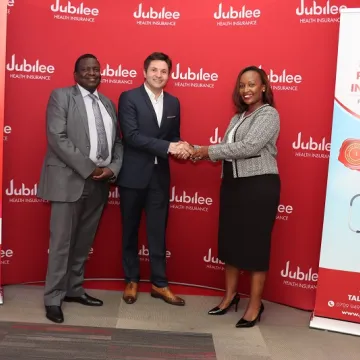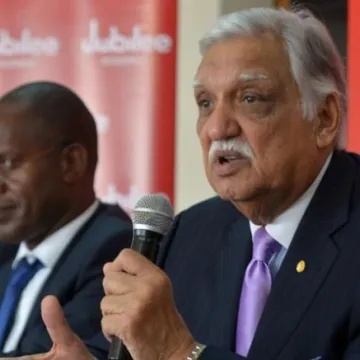Beyond remittances: The diaspora’s role in protecting family health

Head of Marketing at Jubilee Health Insurance Monica Chege.
For many East Africans living abroad, there is a familiar moment of unease.
The phone rings in the middle of the night. Before answering, your heart sinks. Then comes the dreaded phrase, “Mum is unwell.”
Whether in the UK, UAE, US, or Germany, this scenario is common. For countless members of the East African diaspora, particularly Kenyans overseas, serving as the family’s emergency fund has become routine.
According to the Central Bank of Kenya (CBK), Kenyans abroad remitted a record USD4.19 billion in 2023, with health emergencies among the most frequent reasons for these transfers.
Sending money home is an act of care and responsibility. Yet, this form of support is often reactive. Families may wait days for funds to clear, seek cheaper and sometimes inadequate medical options, or forego treatment entirely to avoid “burdening” relatives abroad. This dynamic, while born from love, can be emotionally draining and financially unsustainable.
Sixty-six per cent of Kenyans have no medical insurance, relying instead on out-of-pocket payments or family assistance during illness, according to a 2022 report by the Kenya National Bureau of Statistics (KNBS).
For aging parents and children back home, this often results in delayed treatment or unmet medical needs.
Health insurance offers a more sustainable solution. Diaspora-focused medical cover for families in Kenya ensures loved ones can access timely care without waiting for remittances.
For example, comprehensive diaspora health insurance Kenya plans now provide access to a wide network of hospitals, consultations with doctors and specialists, treatment for chronic conditions such as diabetes and hypertension, pharmacy services, and even telemedicine.
This kind of cover is about ensuring healthcare for families back home is reliable, timely, and dignified.
Health insurance is also a safeguard for dignity. It allows a father in Nakuru to seek treatment without first calling his daughter in London. It ensures a grandmother in Kisii receives her medication on time. And it frees diaspora families from the anxiety that every call from home might be a plea for help.
With digital enrolment, flexible payments via M-Pesa or bank transfer, and transparent coverage options, medical cover for parents in Kenya is now accessible from anywhere in the world. The result is a shift from crisis management to genuine peace of mind for both those abroad and those at home.
Healthcare should never be delayed due to distance or financial transfer times. If you have ever sent money urgently for medical care, it may be time to consider a more permanent arrangement.
For Kenyans abroad, the question is not if your family will need healthcare — but whether they will have it when they do. Securing diaspora health insurance ensures that the next call from home is met with calm, not crisis.
Ultimately, the story of the diaspora is one of deep connection, ties that no ocean can weaken. Yet those ties should not be defined by moments of emergency by shifting from reactive support to proactive care, we can ensure that calls from home carry laughter, good news, and the everyday updates that make family life rich.
The writer, Monica Chege, is the Head of Marketing at Jubilee Health Insurance [email protected]





